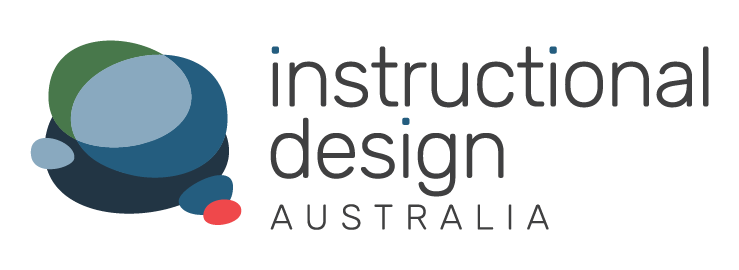Innovating Education through Personalised Learning Solutions: A Look into Custom eLearning
Understanding Personalised Learning Solutions
Personalised learning solutions are tailored to meet individual needs and preferences. They aim to adapt to each learner’s pace, style, and interests. By using personalised learning, educators can create custom learning paths that cater to each student’s strengths and areas for improvement. This approach promotes engagement and can lead to better knowledge retention. Personalised learning solutions help students take control of their learning journey, making it more effective and meaningful.
Benefits of Custom eLearning
Custom eLearning offers tailored learning experiences that cater to individual needs. With personalised content, learners can grasp concepts more effectively and at their own pace. Custom eLearning also allows for interactive features like quizzes, simulations, and multimedia elements, making the learning process engaging and memorable.
Tailoring Education to Individual Needs
Personalised learning solutions cater to the specific needs of each student, allowing for a tailored educational experience. This approach focuses on adapting the content, pace, and style of learning to fit an individual’s unique learning preferences. With personalised learning, students can achieve a deeper understanding of the material and progress at their own pace. It promotes student engagement and motivation by making the learning experience more relevant and meaningful to each individual.
Differentiated Instruction for Every Student
Differentiated instruction is a teaching approach that tailors lessons to meet the individual needs of each student. It involves adjusting the content, process, and product of learning tasks to suit diverse learning styles and abilities. By accommodating different learning preferences, educators can better engage students and help them achieve academic success. Key points to remember about differentiated instruction:
- Customisation: Lessons are customised to match students’ unique learning needs.
- Flexibility: Teachers adapt teaching methods to cater to various learning styles.
- Individualisation: Each student receives personalised learning experiences to enhance understanding and retention of information.
- Support: Differentiated instruction provides additional support for struggling students while challenging those who excel.
- Accessibility: It ensures that all students have access to a high-quality education tailored to their abilities and interests.
Technology in Personalised Learning
Technology plays a crucial role in personalised learning solutions. It enables educators to tailor teaching methods to meet individual student needs efficiently. Through the use of interactive eLearning platforms, students can engage with educational materials at their own pace and in a way that suits their learning styles. Adaptive technology in eLearning helps track students’ progress and adjust the content to provide a personalised learning experience. Additionally, virtual reality and augmented reality applications are being used to create immersive learning environments, making education more engaging and effective for students.
Implementing Custom eLearning Programmes
To implement custom eLearning programmes, start by identifying the specific learning objectives you want to achieve. Next, collaborate with eLearning experts to design tailored courses that meet your organisation’s unique needs. Utilise interactive multimedia elements like videos, quizzes, and simulations to engage learners effectively. Regularly assess the programme’s performance and gather feedback for continuous improvement. Customise the learning experience further by offering personalised content based on individual progress and preferences.
Strategies for Engaging Learners
Engaging learners can be achieved through various strategies in personalised eLearning. Here are some effective ways to keep learners interested and motivated:
- Interactive Content: Include videos, quizzes, and activities to make the learning experience more engaging.
- Gamification: Integrate game elements like points, rewards, and leaderboards to make learning fun and interactive.
- Personalised Learning Paths: Tailor learning materials to suit the individual needs and preferences of each learner.
- Collaborative Learning: Encourage group discussions, projects, and peer-to-peer interactions to promote active engagement.
- Feedback Mechanisms: Provide timely feedback to learners to track their progress and encourage continuous improvement.
By incorporating these strategies, educators can enhance learner engagement and create a more effective and enjoyable learning experience.
Tracking Progress and Assessing Success
In custom eLearning, tracking student progress and assessing success are crucial aspects. You can monitor how well learners are grasping concepts and identify areas where they may need extra support. By evaluating performance data, you can make informed decisions to improve the overall learning experience. Regular assessments allow for real-time feedback and help in adjusting the course content to better meet individual needs. This personalised approach is key to ensuring that each student reaches their full potential.
Overcoming Challenges in Personalised Learning
Personalised learning can present various challenges due to the individualised nature of the approach. One common hurdle is ensuring that each student receives tailored content and support without overwhelming teachers or sacrificing the quality of education. Another challenge is the need to constantly assess and track student progress to adjust personalised learning plans effectively. Engagement can also be a challenge, as keeping students motivated and focused on their unique learning paths requires innovative strategies. Lastly, technology integration can be a challenge, as schools may face barriers in access to resources or technical support for implementing personalised learning solutions effectively.
Future Trends in Education with Custom eLearning
Custom eLearning is shaping the future of education by providing personalised learning experiences. This trend is gaining momentum as educators and learners seek tailored solutions to meet their unique needs. Some key future trends in education with custom eLearning include:
- Adaptive Learning: Custom eLearning platforms are becoming more adaptive, adjusting content and pacing based on individual learner progress.
- Microlearning: Short, focused learning modules are on the rise, allowing for quick and targeted learning experiences.
- Interactive Simulations: Increasing use of interactive simulations for hands-on learning experiences that engage and immerse learners.
- Data-Driven Insights: Custom eLearning platforms are leveraging data analytics to provide insights into learner performance and preferences.
- Mobile Learning: With the rise of mobile devices, custom eLearning is becoming more accessible anytime, anywhere.
These trends show the exciting possibilities that custom eLearning holds for the future of education.
Office
E: [email protected]
Ph: 1300 528 736
Michael Peart
E: [email protected]
Ph: 0434 075 231
Bianca Schimizzi
E: [email protected]
Ph: 0416 013 623

